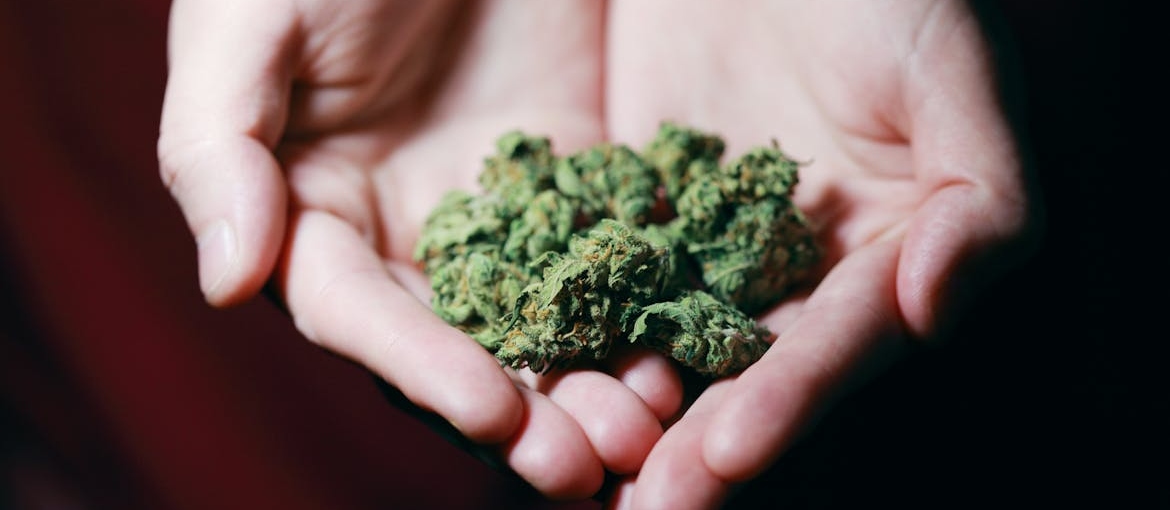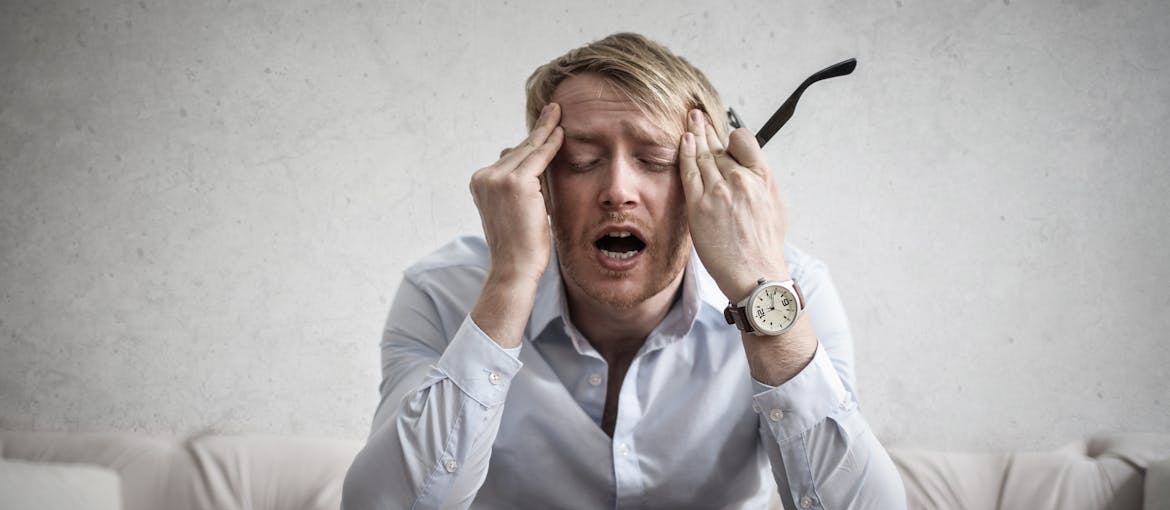Stopping cannabis can feel confusing, especially if your body reacts in ways you didn’t expect. You might wonder, can you have withdrawals from weed, and the answer can feel scary when you’re dealing with real symptoms. Many people feel stressed when sleep shifts, moods swing, or cravings appear. Some people handle this process at home, while others feel safer with extra guidance. Rehabs in WV can help if you need more structure or a calm place to reset. Whatever you’re facing, there are real steps that can help you feel better.
Can You Have Withdrawals From Weed?
You might ask yourself, can you have withdrawals from weed, especially if your body acts differently after stopping. Many people feel confused when sleep shifts, hunger changes, and irritability shows up without warning. These reactions can feel scary, but they are real and common. Your system adjusts when you step away from regular use, and that adjustment can create symptoms that feel uncomfortable.

You don’t have to deal with this alone. A marijuana rehab center can help you understand what’s happening and offer steps that keep the process manageable. You deserve clear answers and steady support while you move through these changes. It’s okay to look for help when things feel heavy. You can feel better with the right plan, and you don’t need to face the stress without guidance.
Physical Symptoms Linked to Weed Withdrawal
You may ask can you have withdrawals from weed when your body reacts in ways you didn’t expect. Physical symptoms can appear quickly, and they can make daily tasks harder. These reactions are normal, and they don’t mean something is wrong:
- Headaches
- Stomach changes
- Sweats
- Restlessness
- Sleep trouble
- Fatigue
Emotional and Mental Effects During Withdrawal
You might still wonder can you have withdrawals from weed when your emotions shift faster than usual. These mental symptoms can feel heavier than the physical ones. It can feel overwhelming, but these symptoms won’t last forever. Here are common emotional signs:
- Irritability
- Racing thoughts
- Anxiety
- Low motivation
- Sadness
- Frustration

When Withdrawal Signs Suggest a Bigger Problem
Some people start to worry can you have withdrawals from weed when symptoms feel stronger than expected. If withdrawal begins to disrupt your sleep, appetite, work, or relationships, you may need more support. Strong cravings, panic, or sudden mood swings can signal that your system is struggling to rebalance. It’s not a sign of weakness. It shows you need help that gives structure and guidance.
An intensive outpatient program West Virginia residents rely on can offer steady care while you keep your routine. You get therapy, coping tools, and check-ins that help you stay grounded. You don’t have to wait for symptoms to get worse. Getting help early protects your progress and gives you a clearer path forward. You deserve care that makes this process easier to handle.
Professional Treatment Options for Cannabis Withdrawal
You might reach a point where your symptoms feel too strong, and you need steady support that actually helps. Treatment doesn’t have to feel overwhelming. You get structure, clear steps, and a calmer space to sort through what you’re facing. You may still ask what happens to your body when you stop smoking weed, and professional care can give you answers that make sense.
How Rehab Programs Support Cannabis-Related Struggles
Rehab can help when withdrawal takes a toll on your sleep, mood, or focus. You don’t need the hardest symptoms to ask for support. You get a steady routine, clear expectations, and people who understand the stress you’re dealing with now. A partial hospitalization program West Virginia clients rely on can give you structured care without removing your freedom. You learn what triggers your cravings and what helps you stay grounded through rough moments.
You might still wonder can you have withdrawal symptoms from weed, and rehab teams can explain your reactions in ways that make sense. They don’t judge you for struggling. They help you feel safe and supported as you adjust. You get guidance, therapy, and daily check-ins that keep you moving forward at a pace that feels manageable.

Why Therapy Helps With Both Cravings and Stress
Therapy helps you talk through the cravings, stress, and frustration that can show up during withdrawal. You don’t have to carry everything on your own. Your thoughts might jump around, and your mood might shift fast. A therapist can help you sort through those reactions in a steady, simple way.
You can join group therapy for addiction, where other people share similar struggles, and that support can help you feel less alone. Learning tools that calm your body and your mind can help when symptoms feel heavy. You get space to talk about anger, sadness, or fear without shame. You learn how to manage triggers that show up in daily life.
Medication Options Used for Sleep or Anxiety
Withdrawal can make your nights rough and your days tense. Sleep can be off, and anxiety can rise fast. Medication is not always needed, but it can help when the symptoms disrupt your routine. A doctor can explain safe options that support your sleep or calm your mind as your body adjusts. Humana rehab coverage may help with some of these services, depending on your plan:
- Sleep support
- Short-term anxiety relief
- Stabilizing medications
- Non-addictive options
- Doctor-monitored use
- Symptom tracking
Home Strategies That Make Withdrawal More Manageable
You might feel lost when symptoms hit, and that pressure can make everything harder. You deserve steps that help you stay steady through the rough days. Simple habits can make the process feel less chaotic and give you more control over your mood. You might still wonder can you have a withdrawal from weed, and these strategies can help you handle the shifts that show up as your body adjusts. You’re doing your best, and that matters.

Daily Habits That Support a Steadier Mood
Small routines can help your body settle as withdrawal symptoms move through your day. You don’t need perfect habits to feel better. Consistent steps can calm your mind and help you stay focused. Your emotions can shift fast, so routines add structure when you feel unsteady. These habits don’t fix everything, but they support you while your system resets and adjusts to the changes happening inside you:
- Hydration routine: Keeps your energy more stable.
- Balanced meals: Helps your mood settle over time.
- Short breaks: Gives your mind a reset.
- Light planning: Reduces stress when days feel heavy.
- Calm spaces: Helps lower emotional tension.
- Gentle check-ins: Helps you notice early signs of stress.
Sleep Routines That Reduce Irritability
Sleep can change fast when withdrawal starts, and the frustration can build quickly. You might wake up often, struggle to fall asleep, or feel restless as soon as you close your eyes. Keeping a steady routine helps your body settle into a pattern again. Try going to bed at the same time every night, even if your sleep feels off right now. Turn off bright screens earlier to lower stimulation.
A simple wind-down routine can make you feel more grounded. Soft lighting, slow breathing, or warm showers can help your body shift into rest mode. You might still think about can you have withdrawal from weed, and poor sleep is one of the common reactions. You’re not doing anything wrong. You’re adjusting, and small steps can help you feel more balanced.
How Physical Activity Helps Reset Your System
Movement can help you feel more settled when symptoms feel intense. You don’t need long workouts. Even short walks can calm your mind and loosen the tension in your body. Gentle stretching can help when irritability rises or restlessness makes it hard to sit still. Many people use movement to release the extra energy that shows up during withdrawal.
Programs built around exercise and addiction recovery often show how simple movement helps your sleep and stress levels. You don’t have to push hard; you only need small consistent steps. A slow walk outside, a few minutes of stretching, or a light routine at home can help your mood shift. These activities help your body reset and support you while symptoms fade. Movement gives you a way to feel more in control.

How to Prevent Future Withdrawal Episodes
You can reach a place where withdrawal feels less scary, and steps that protect your progress become easier to follow. You may still wonder what are the withdrawals of weed, especially if you had a rough experience before. Preventing another episode starts with simple limits and steady support. You don’t need perfection. You just need habits that protect your mental and physical balance as you move forward.
How Ongoing Recovery Support Helps You Stay Stable
Support after withdrawal helps you stay balanced as life settles again. You don’t have to face everything on your own. Talking with someone who understands what you’re dealing with can take pressure off your mind. A drug rehab for veterans or similar program can offer steady guidance and a place to share what you’re facing without judgment.
Support groups, counseling, and check-ins help you stay aware of changes in your mood and cravings. These services give you structure without taking away your independence. You learn how to handle stress in ways that protect your progress. You might still wonder can you have withdraws from weed, and ongoing support gives you answers and stability. With steady care, you can move forward with more confidence and fewer setbacks.
Building Long-Term Coping Skills
Coping skills can help you stay grounded when stress rises or cravings hit. You don’t need intense techniques. You only need tools that work for you. These habits help you manage pressure without slipping back into heavy use. Over time, you learn which skills calm your mind and which ones help you stay focused when the day feels rough. These small tools can protect your progress in simple, steady ways:
- Slow breathing: Helps calm racing thoughts.
- Short pauses: Gives you space to reset.
- Support calls: Keeps you from carrying stress alone.
- Mental health journaling: Helps you spot early triggers.
- Healthy distractions: Lowers cravings without pressure.
- Routine adjustments: Helps you avoid stressful patterns.

Setting Limits on Use Once Symptoms Improve
Setting limits helps you avoid slipping into patterns that increase withdrawal risk. You don’t need strict rules; you only need clear boundaries that help you stay steady. Some people reduce use slowly, while others prefer longer breaks. Pick an approach that feels realistic for you.
Pay attention to moments when cravings rise, because those moments can guide you. When you track your reactions, you learn which habits help you stay balanced. This can prevent another cycle of symptoms later. You might still think about how long does it take to feel normal after quitting weed, and the truth is different for everyone. You’re learning what helps your body and what pushes it out of balance. Every small step you take toward control makes your progress steadier.
Take a Step Toward a Calmer, Healthier Routine
You might still ask yourself, can you have withdrawals from weed, and the truth is that many people face real symptoms when they stop using. You’re not weak for feeling this way. Your body is adjusting, and that can take time. You deserve support that helps you feel steady as you move forward. Small steps make a difference, like better sleep habits, healthier routines, and talking with someone you trust. If your symptoms feel too strong or start to disrupt your days, reaching out for help can make the process easier. You don’t have to handle everything alone. Support exists, and you can build a plan that fits your needs.



